The Great Book of Witchcraft unites an unprecedented array of texts spanning the intricacies of witchcraft's portrayal through history, showcasing the evolution of this enigmatic practice across various cultural and literary contexts. From historical analysis, folklore, and personal narratives to the foundational laws that governed the witch trials, this anthology explores the multifaceted dimensions of witchcraft. The collection is notable for its breadth, spanning different periods and regions, thereby providing readers with a comprehensive view of the subject. Among the standout pieces are seminal works that have shaped the public's understanding of witchcraft and influenced subsequent literary and historical interpretations. The diverse range of literary styles, from the scholarly to the sensational, enriches the anthology's exploration of its themes, offering a nuanced perspective on a complex topic. The contributing authors and editors, including figures such as Bram Stoker and Margaret Murray, bring together a wealth of expertise and perspectives to the anthology. This group represents a broad spectrum of intellectual and cultural backgrounds, contributing to the rich tapestry of narratives and analyses within the book. Their collective work engages with significant historical and cultural movements, from Enlightenment rationalism to Victorian occultism, reflecting the changing attitudes towards witchcraft over centuries. The varied backgrounds of these contributors enrich the anthology by providing a wide range of insights and interpretations, thus enabling a deeper understanding of the historical and cultural dimensions of witchcraft. The Great Book of Witchcraft is recommended for those eager to explore the complex legacy of witchcraft through a meticulously curated collection of works. This anthology offers readers an invaluable opportunity to engage with a variety of perspectives, themes, and styles, all while gaining comprehensive insights into the phenomenon of witchcraft. It invites an educational journey that is as enlightening as it is diverse, making it an essential addition to the libraries of scholars, students, and anyone fascinated by the history of witchcraft and its depiction in literature and society. The dialogue fostered between the different authors' works within this single volume promises a nuanced exploration of witchcraft's cultural and historical significance.

Dracula
Bram Stoker
audiobookbook
150 Classics You Should Read Before You Die : Romeo and Juliet, Emma, Vanity Fair, Middlemarch, Tom Sawyer, Faust, Notre Dame de Paris, Dubliners, Odyssey
William Shakespeare, John Milton, Jonathan Swift, Daniel Defoe, Henry Fielding, Laurence Sterne, Jane Austen, William Makepeace Thackeray, P. B. Shelley, Mary Shelley, John Keats, Charlotte Brontë, Emily Brontë, Anne Brontë, George Eliot, Charles Dickens, Thomas Hardy, Elizabeth von Arnim, D. H. Lawrence, Ann Ward Radcliffe, Bram Stoker, Arthur Conan Doyle, Joseph Conrad, Oscar Wilde, Lewis Carroll, Frances Hodgson Burnett, C. S. Lewis, George Weedon Grossmith, H. G. Wells, Willkie Collins, G. K. Chesterton, E. M. Forster, T. S. Eliot, James Joyce, George Bernard Shaw, W. B. Yeats, Sir Walter Scott, Robert Louis Stevenson, Kenneth Grahame, George MacDonald, J. M. Barrie, Mark Twain, Jack London, Herman Melville, Nathaniel Hawthorne, Louisa May Alcott, Willa Cather, Edith Wharton, Kate Chopin, Henry David Thoreau, Walt Whitman, Kahlil Gibran, Harriet Beecher Stowe, Frederick Douglass, James Fenimore Cooper, Henry James, Edgar Allan Poe, H. P. Lovecraft, Lewis Wallace, L. M. Montgomery, Homer, Apuleius, Marcus Aurelius, Johann Wolfgang von Goethe, Herman Hesse, Friedrich Nietzsche, Jules Verne, Marcel Proust, Victor Hugo, Gustave Flaubert, Gaston Leroux, Honoré de Balzac, Stendhal, Plato
book
150 Classics You Should Read Before You Die : Romeo and Juliet, Emma, Vanity Fair, Middlemarch, Tom Sawyer, Faust, Notre Dame de Paris, Dubliners, Odyssey
Johann Wolfgang von Goethe, Stendhal, Jules Verne, Gustave Flaubert, Lewis Carroll, Charles Dickens, Plato, Honoré de Balzac, Mark Twain, Harriet Beecher Stowe, Walt Whitman, Oscar Wilde, Robert Louis Stevenson, James Fenimore Cooper, Edgar Allan Poe, William Shakespeare, George MacDonald, Bram Stoker, Charlotte Brontë, Anne Brontë, Emily Brontë, Henry David Thoreau, Jack London, Henry James, Louisa May Alcott, Victor Hugo, Arthur Conan Doyle, Frances Hodgson Burnett, Joseph Conrad, Jane Austen, Herman Melville, George Eliot, Laurence Sterne, Thomas Hardy, Jonathan Swift, Edith Wharton, Daniel Defoe, Henry Fielding, Kenneth Grahame, Marcel Proust, Willa Cather, Nathaniel Hawthorne, Homer, Gaston Leroux, William Makepeace Thackeray, Kate Chopin, Apuleius, John Milton, Frederick Douglass, John Keats, James Joyce, Ann Ward Radcliffe, Kahlil Gibran, H. G. Wells, W. B. Yeats, J. M. Barrie, G. K. Chesterton, T. S. Eliot, L. M. Montgomery, C. S. Lewis, D. H. Lawrence, E. M. Forster, H. P. Lovecraft, Marcus Aurelius, Friedrich Nietzsche, Lewis Wallace, Sir, George Bernard Shaw, Mary Shelley, P. B. Shelley, Elizabeth von Arnim, Herman Hesse, George Weedon Grossmith, Willkie Collins
book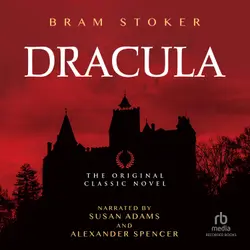
Dracula
Bram Stoker
audiobookbook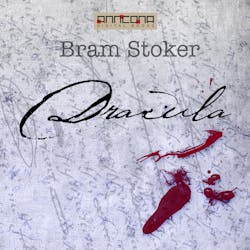
Dracula
Bram Stoker
audiobookbook
Dracula
Bram Stoker
audiobookbook
Dracula
Bram Stoker
audiobookbook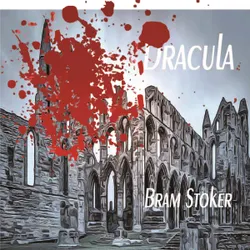
Dracula
Bram Stoker
audiobookbook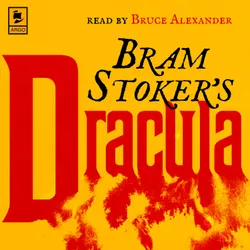
Dracula
Bram Stoker
audiobook
75+ Horror Anthologies
Edgar Allan Poe, Bram Stoker, Mary Shelley, Joseph Sheridan Le Fanu, Robert Louis Stevenson, Howard Phillips Lovecraft, Algernon Blackwood, Francis Marion Crawford, Robert W. Chambers
audiobook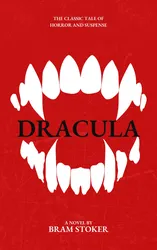
Dracula by Bram Stoker : The Classic Tale of Horror and Suspense - Kindle Edition
Bram Stoker, Booktopia
book
🧛♂️ DRACULA by Bram Stoker [2025 Kindle Edition] - The #1 Classic Vampire Horror Novel that Inspired Nosferatu | FREE with Kindle Unlimited
Bram Stoker, Redhouse
book
